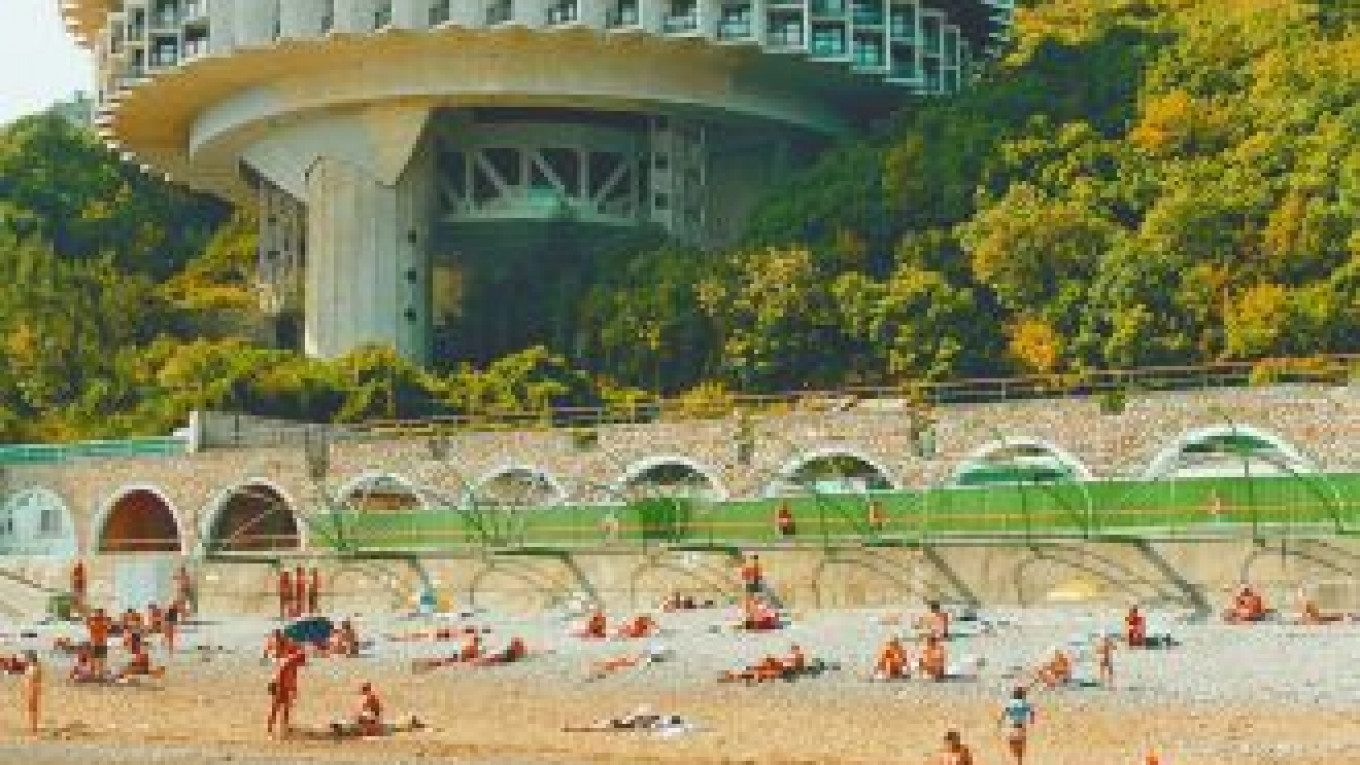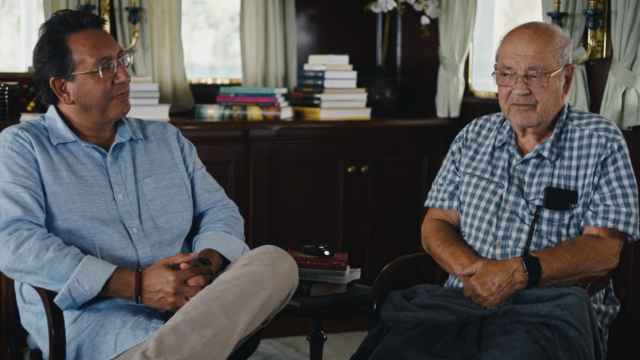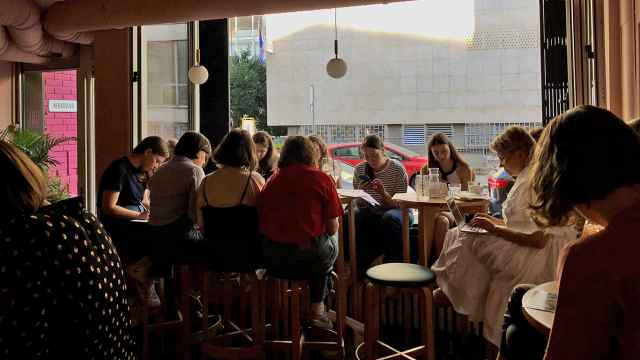A new book examines 90 weird and wonderful buildings dominating the urban landscape of 14 former Soviet republics.
Mention the words “Soviet architecture” and the buildings that spring to mind go from hulking brutalism, Stalinist neo-classical kitsch or — the scourge of inner cities everywhere — the pre-cast paneled apartment block. A new book and exhibition project look set to change all that, however, bringing an overdue appreciation for what can only be called Space Age Modern.
The project is the brainchild of Frederic Chaubin, chief editor of French fashion and lifestyle magazine Citizen K. Too clever by half, it is titled “Cosmic Communist Constructions Photographed” in a convoluted bid to render the Russian abbreviation for the U.S.S.R. in English.
Divided into five sections — Entertainment and Culture, Science and Technology, Sports and Youth, Rites and Symbols, and Health and Resorts — the book presents 90 buildings from 14 former Soviet republics that express what the author considers to be the fourth age of Soviet architecture: “An unexpected rebirth of imagination, an unknown burgeoning that took place from 1970 until 1990.”
In the search for a conceptual framework with which to support his understandable but rather obvious interest in these buildings, the author invokes the exotic with an emphasis on inaccessibility and otherness. Preferring hollow cliche and circular logic, Chaubin minimizes the fact that these buildings have been part of the landscape for quite a long time. Rem Koolhaas, Jean Nouvel and Daniel Liebeskind have all drawn on the legacy of Soviet architecture. And one need only ask local residents for whom these buildings are part of their daily lives to know that the structures, while certainly marginalized, are far from unfamiliar. Who in their right mind could fail to notice a flying saucer parked on their doorstep?
When asked whether there was any message behind the photographs in a 2006 interview on the occasion of an exhibition at British fashion designer Paul Smith’s gallery in Japan, Chaubin’s rather feeble response was: “Some kind of emotion … could be nostalgia.” Which is exactly right and places the project in a context that makes sense: as part of a larger trend that some have dubbed “ostalgie” — a portmanteau of the German words for “east” and “nostalgia.”
One of the few moments of clarity and honesty comes midway through the introduction when the author says: “The key to Soviet architecture is above all political. The causes of its evolution are to be sought not in architectural theory but, more prosaically, in the regime and its evolution. Nowhere else and nowhere over such a long period of time has the urban landscape been so directly shaped by power.” Which is about all that needs to be said. But such brevity doesn’t necessarily fulfill the needs of publishers.
It can only be hoped that the project will go some way toward bringing about a change in attitude towards these often-maligned buildings here in Russia and the CIS. It might just help postpone their destruction in a climate where even well-loved buildings are routinely demolished to make way for tasteless new apartment blocks, malls and luxury hotels. For this reason alone, the book is to be celebrated — even if it does make for a rather exasperating read.
“Cosmic Communist Constructions Photographed” by Frederic Chaubin is published by Taschen Books and released to coincide with an exhibition of photographs at the ZKM Museum of Contemporary Art, Karlsruhe, Germany, that runs from Jan. 29 through March 27.
A Message from The Moscow Times:
Dear readers,
We are facing unprecedented challenges. Russia's Prosecutor General's Office has designated The Moscow Times as an "undesirable" organization, criminalizing our work and putting our staff at risk of prosecution. This follows our earlier unjust labeling as a "foreign agent."
These actions are direct attempts to silence independent journalism in Russia. The authorities claim our work "discredits the decisions of the Russian leadership." We see things differently: we strive to provide accurate, unbiased reporting on Russia.
We, the journalists of The Moscow Times, refuse to be silenced. But to continue our work, we need your help.
Your support, no matter how small, makes a world of difference. If you can, please support us monthly starting from just $2. It's quick to set up, and every contribution makes a significant impact.
By supporting The Moscow Times, you're defending open, independent journalism in the face of repression. Thank you for standing with us.
Remind me later.






